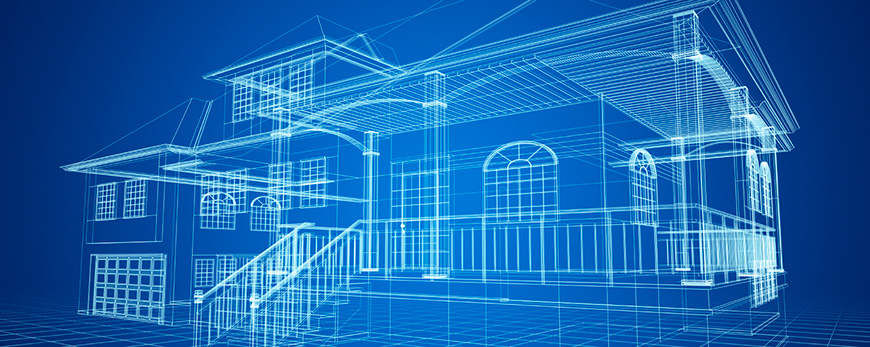Elevate Your Structure Layout with the Expertise of CDA Architects
Elevate Your Structure Layout with the Expertise of CDA Architects
Blog Article
Comprehending the Collaborative Process Between Engineers and Designers in Modern Building And Construction Projects
The collaborative process in between designers and engineers is essential in contemporary building and construction jobs, as it integrates design intent with engineering usefulness. Exploring these dynamics discloses insights that could substantially impact job end results and total industry requirements.
The Importance of Partnership
The joint harmony between designers and designers is necessary for the successful realization of any building job. This collaboration combines unique expertise and perspectives, allowing the assimilation of cutting-edge design with useful engineering options. By functioning with each other, architects and engineers can guarantee that a job not only satisfies aesthetic and practical needs yet additionally follows safety and security, sustainability, and financial constraints.
Collaboration fosters a shared vision, helping with the positioning of goals and expectations from the beginning. This positioning is vital in resolving possible obstacles and mitigating threats that can emerge throughout the job lifecycle. A joint strategy enables for the effective allotment of resources, maximizing both time and price.
The significance of partnership reaches the repetitive procedure of style and construction, where feedback from designers can notify architectural choices, causing more viable and lasting styles. Conversely, engineers can influence engineers to assume artistically about just how to accomplish structural honesty without compromising imaginative intent. Eventually, the collaborative partnership between designers and designers is not merely valuable; it is essential to the creation of high-grade, practical, and ingenious built environments that satisfy the needs of culture.
Communication Methods and Devices
Efficient interaction methods and devices are important for cultivating partnership in between architects and designers throughout the project lifecycle. Developing clear networks of communication is important to guarantee that all group members are lined up with project goals, timelines, and duties. Regular conferences, both in-person and digital, offer chances for stakeholders to discuss development, address worries, and make educated decisions.
Using task management software application, such as BIM (Structure Details Modeling) platforms, improves partnership by making it possible for real-time sharing of design adjustments and technological requirements. These devices facilitate transparency, allowing architects and engineers to picture adjustments and analyze their effect on the overall job.

Shared Objectives and Project Vision

Establishing shared objectives involves open discussion and a comprehensive understanding of each technique's contributions. Engineers normally focus on style intent, spatial partnerships, and individual experience, while designers emphasize structural stability, systems functionality, and compliance with laws (cda architects). When these perspectives are lined up, the outcome is a cohesive project that sticks to both imaginative aspirations and technical usefulness
Moreover, a well-defined job vision promotes liability among employee, motivating each individual to take possession of their role in achieving the preferred result. Routine check-ins and joint workshops can better reinforce check my site this commitment, permitting for adjustments to be made as the project develops. Eventually, a shared vision not just improves team effort however additionally boosts the top quality of the last deliverable, bring about effective task conclusion.
The Role of Technology
Leveraging technology has actually ended up being essential in boosting collaboration in between architects and designers. The integration of innovative software application devices facilitates real-time communication and information sharing, making it possible for groups to work a lot more efficiently and effectively. Structure Info Modeling (BIM) stands out as an essential modern technology, allowing both architects and designers to create thorough find this 3D models that encapsulate layout intent and structural stability. This common graph decreases misunderstandings and improves the decision-making process.
Moreover, cloud-based platforms enable seamless partnership, enabling task stakeholders to accessibility and upgrade task data from anywhere. This fosters a culture of transparency and responsibility, as modifications can be tracked and examined in real-time. Furthermore, mobile applications more boost interaction, giving on-site groups with prompt accessibility to task requirements and updates.
Emerging innovations such as artificial intelligence and maker discovering are likewise starting to play a function in predictive analysis, helping teams recognize possible concerns prior to they arise. Ultimately, the duty of modern technology in architecture-engineering cooperation not just enhances workflow efficiencies but additionally improves advancement, resulting in more effective task results. By welcoming these technical improvements, designers and engineers can make certain an extra cohesive and productive joint process throughout the building lifecycle.
Study in Successful Partnerships
Countless study highlight the profound effect of reliable collaborations in between architects and engineers on project end results. One significant example is the cooperation on the High Line in New York City, where landscape engineers, engineers, and city coordinators interacted to transform a deserted rail line right into a vibrant public park. This multidisciplinary strategy not only boosted the aesthetic high quality but likewise ensured architectural safety and environmental sustainability.
An additional exemplary instance is the design and building and construction of the Sydney Music Hall. The collaboration in between designer JÃ ¸ registered nurse Utzon and structural engineer Ove Arup exhibited innovative analytical. Their cooperation permitted the famous shell-like style while resolving complicated design obstacles, ultimately causing a classic architectural masterpiece.
The Burj Khalifa in Dubai better shows the importance of collective initiatives. cda architects. The integration of architecture and engineering expertise made it possible for the project team to accomplish unmatched elevations while sticking to safety policies and aesthetic vision
These examples highlight the value of interaction, trust, and shared objectives. In today's complex building atmosphere, such collaborations are important to navigating difficulties and providing jobs that satisfy both useful and visionary objectives.
Final Thought
In final thought, the collaboration between architects and engineers is essential for the success of modern-day building projects. Reliable interaction techniques, a common job vision, and the integration of innovative innovations are crucial parts that promote this collaboration.
Report this page